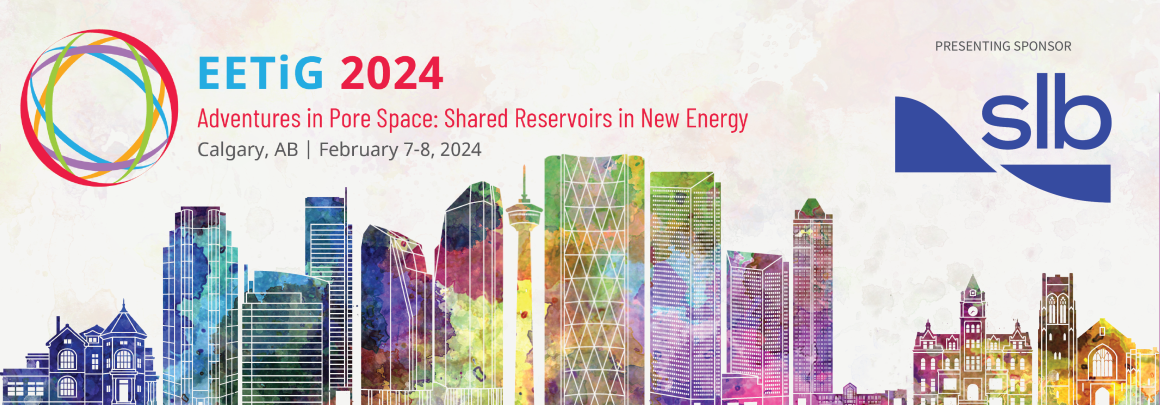Session 1: Deepening our Geological Understanding
Session Chairs: Natasha Morris, E3 Lithium and Francis Morin, McDaniel & Associates
The Deepening our Geological Understanding session explores the frontiers of geoscientific research, emphasizing advancements regional mapping, addressing biases in existing datasets, and unlocking the potential of unexplored areas beyond traditional oil and gas fields. This session delves into our current understanding of the WCSB stratigraphic framework and pushes the boundaries of exploration, showcasing innovative approaches, technologies, and interdisciplinary collaborations in the field of geoscience.
Alignment and latest advancement in geoscientific research and exploration is the focus of the session. This is an opportunity to engage in discussions with leading experts, discover emerging technologies, and learn about exciting opportunities for the integration of geoscience industries.
Session 2: Shared aquifer resources
Session Chairs: Francis Morin, McDaniel & Associates and Steve Grasby, Geological Survey of Canada
The Shared Aquifer Resources session delves into the complex interplay between various industries reliant on shared aquifer systems. This session explores the challenges and opportunities associated with the coexistence of multiple sectors, including helium extraction, lithium brine production, water disposal practices, geothermal energy production, and carbon capture, utilization, and storage (CCUS) initiatives. Furthermore, the session will address the intricate aspects of pore space ownership and tenure within these shared aquifer resources.
The session engages with experts from various disciplines, discovers innovative approaches, and examines contributions to the development of sustainable strategies that ensure the equitable and responsible utilization of these vital resources.
Session 3: new energy in mature reservoirs
Session Chairs: Nico Vandersalm, Tourmaline Oil and David Hills, Entropy Inc.
From the 1960’s until early 2000’s conventional reservoirs dominated oil and gas exploration in Western Canada. Both primary and secondary recovery schemes were common and supported the early energy industry. These same depleted and mature reservoirs became water disposal candidates supporting hydraulic fracturing flowback and the unconventional resource wave that moved through the provinces in the last 15 years. Now Canada faces a question, can and should these mature oil and gas fields be used purely for long term CO2 sequestration and storage or are there other opportunities to be exploited before these fields eventually store our emissions. Numerous additional opportunities exist from CO2 EOR and storage, geothermal power generation, lithium extraction and even helium recovery. Each one is trying to establish itself in an ever-changing and challenging new energy industry. Identifying value propositions, like remaining hydrocarbon, valuable noble gases, heat, and dissolved minerals while leveraging existing infrastructure and finally embracing co-current production possibilities may be the answer.
In the New Energy in Mature Reservoirs session, operators in waste disposal, tertiary CO2 EOR recovery, geothermal, lithium and helium will discuss the value propositions left for the mature oil and gas fields in Canada. Each unique reservoir will have characteristics our speakers will discuss capitalizing on, in the next phase of development.
Session 4: Harmonizing policy, regulation and innovation
Session Chairs: Gordon Brasnett, Sproule and Natasha Morris, E3 Lithium
Policies and programs that effectively govern responsible resource development are critical to protecting the environment and the public, while providing an opportunity for workers and citizens to share in the prosperity associated with economic development. Collaborative research and innovation, effective industrial policy, and an appropriate regulatory/policy regime governing resource development can spur economic booms. As we explore new energies, there is significant complexity, and significant opportunity, for collaboration to invigorate development, but conflicts between resources and pore space rights need to be navigated deftly. All parties can likely agree on the need for clear regulatory directives and policies that effectively incentivize responsible development. The Harmonizing Policy, Regulation, and Innovation session will engage industry and regulatory specialists for discussions on where new energy policy is currently and where it is headed.
